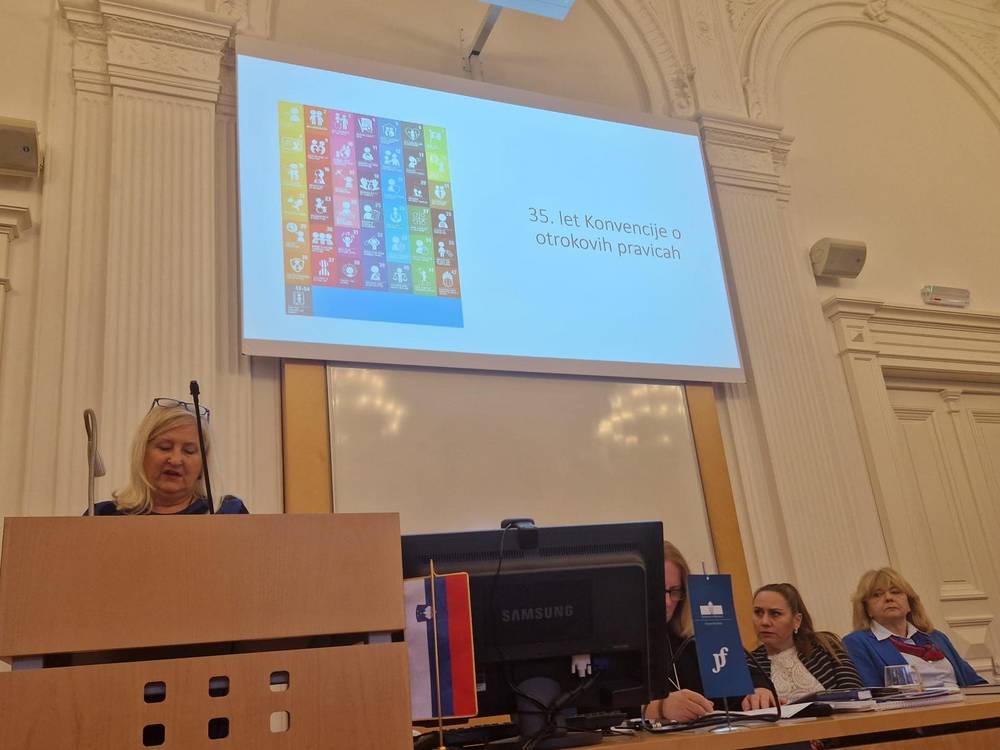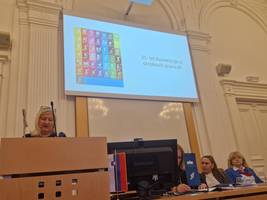Today, 14 November 2024, the Human Rights Ombudsman of the Republic of Slovenia (Ombudsman) participated in a two-day international conference entitled Children's rights in a sustainable and digital environment: exploring opportunities and challenges, organised by the Faculty of Law of the University of Maribor. The conference is being held on the 35th anniversary of the Convention on the Rights of the Child.
In her contribution, Assistant to the Head of the Center for Human Rights at the Ombudsman, Dr Simona Drenik Bavdek emphasised the importance of including children in decision-making processes: "We must enable children to be heard and that their opinions, wishes and views are taken into account. Article 12 of the Convention on the Rights of the Child stipulates that children have the right to express their opinion in all matters that concern them. The state is obliged to ensure that their voice is heard and taken into account, depending on the child's age and maturity, both in judicial and legal proceedings in which they are involved, as well as in other decisions and the preparation of regulations that relate to them. This is how we build an inclusive and child-friendly society, pointed out Dr Drenik Bavdek.
She also presented the Children's Advocacy Institute to the participants of the conference, which has been legally regulated in the Human Rights Ombudsman Act since 2017, but before that it operated as a pilot project for a decade. The purpose of advocacy is to provide children with professional support in expressing their own opinion in all procedures and matters in which they participate, as well as conveying their voice to competent authorities and institutions. The network of advocates in Slovenia represents important support for children in various procedures and cares for their safety and protection from psychological stress
At the conference, experts in the fields of children's rights, law, psychology, and digital technologies also touched on current topics such as the protection of children online, privacy issues in the digital environment, the criminal responsibility of children, the situation of children with special needs, and legal proceedings with the help of digital tools. At the same time, they emphasised new challenges and opportunities for the protection of children's rights in today's rapidly changing world.

